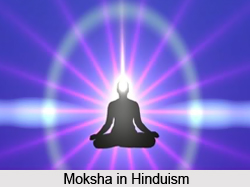 Videha Mukti is a Hindu belief as far as death is concerned. Videha mukti is the basis of the belief of rebirth held by Hindus, Buddhists. A soul is considered to break free from the cycle of death and births after the soul attains Moksha. According to Advaita Vedanta, a soul can be liberated either while living or after death.
Videha Mukti is a Hindu belief as far as death is concerned. Videha mukti is the basis of the belief of rebirth held by Hindus, Buddhists. A soul is considered to break free from the cycle of death and births after the soul attains Moksha. According to Advaita Vedanta, a soul can be liberated either while living or after death.
It is basically the end of the soul`s journey, and it is the ultimate goal and destination for each individual. It is an integrating feature of all religions. According to Meher Baba there are four types of Mukti:
* Ordinary Mukti
* Videh Mukti
* Jivanmukti
* Param Mukti
Videha Mukti belongs to the category of ordinary Mukti. Threefold nature of God is described in Vedanta as Infinite Knowledge, Power and Bliss. Ordinary Mukti is not granted to all. It is granted to a few good people after they die. These souls are bound to experience Infinite Bliss. Videha Mukti is a liberation that is gained while in the body. Souls who drop their bodies when they are in the state of Nirvana attain Videha Mukti.
This article is a stub. You can enrich by adding more information to it. Send your Write Up to content@indianetzone.com



















